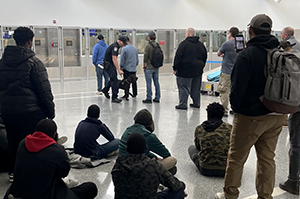
A new product from self-custody provider Casa aims to simplify the inheritance process for crypto holders in the event they pass away by utilizing a multisig security model.

If crypto holders don’t have an inheritance plan in place when they die, their assets could be lost forever.
(Unsplash/Kanchanara)
Posted March 27, 2024 at 11:03 am EST.
Self-custody provider Casa announced Wednesday a new product for BTC, ETH, USDT, and USDC that allows investors to give access to their crypto vaults to a designated family member, trustee, or estate executor in the event they pass away.
Called Casa Inheritance, the product aims to address a widespread problem in crypto, namely, executing an inheritance plan when a self-custodying crypto holder dies. If crypto holders don’t have an inheritance plan in place, they may encounter serious problems, according to Pamela Morgan, an attorney in the blockchain space and the author of “Cryptoasset Inheritance Planning.”
The worst case scenario is “catastrophic loss”, said Morgan on an Unchained podcast back in 2018. “If you don’t have a plan for how your family is going to access them, one of two things is probably true. Either, one, your security is so terrible that someone’s going to find your crypto assets and run away with them, which we hope isn’t the case. Or, [two], your security is so great that it’s actually going to prevent your family from accessing these assets,” Morgan noted.
For example, Ripple billionaire Matthew Mellon passed away almost six years ago without a way for his family to gain access to his crypto holdings, estimated to be worth $500 million at the time. Similarly, 26-year-old bitcoin miner Matthew Moody died in a plane crash in 2013 without any inheritance plan for his BTC.
“[Crypto] is the only major asset class in the world that works like that,” insofar as holders that keep their digital assets in a self-custodied wallet typically don’t have an inheritance plan and thus can easily lose it, said Casa CEO Nick Neuman in an interview with Unchained.
How It Works
Casa’s security model is based on a three key multisig wallet in which an individual needs two of those three keys to spend funds or transfer assets outside of their crypto vault. One key is held on a user’s phone managed by the Casa app. The second key is held on a user’s hardware wallet, while the third key is held by Casa as an emergency backup.
Casa’s inheritance solution, which costs $250 a year, leans on this multisig model to give designated recipients access to their inheritance after their family member passes away but not before that.
After a user designates a recipient in the Casa app, the recipient scans a user’s QR code which transfers an encrypted version of the user’s mobile key to the recipient’s phone. Despite the recipient possessing one of the three keys to a user’s Casa’s multisig setup, the recipient can neither sign transactions nor see any balances in the vault, said Casa’s Neuman.
If the user passes away or becomes incapacitated, the recipient requests access to their inherited vault. This starts a six month timer and during that time period, Casa sends notifications every month to the user, not the recipient, that asks whether the user wants to accept this request access, which is a way of giving their users a chance to inform Casa they are not dead. “When the period elapses, vault access is unlocked for the recipient,” the press release outlined.







